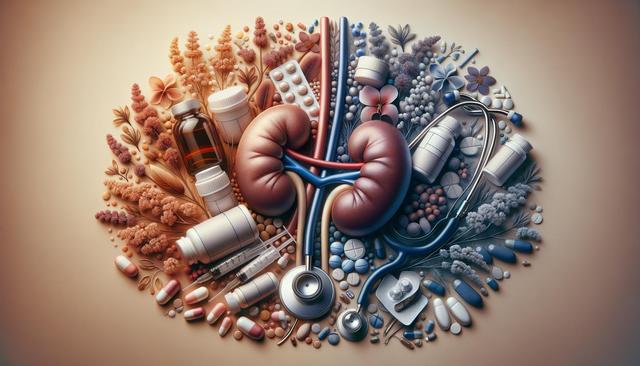What Is Stage 3 Chronic Kidney Disease?
Stage 3 chronic kidney disease (CKD) is characterized by a moderate decline in kidney function, where the estimated glomerular filtration rate (eGFR) falls between 30 and 59 mL/min/1.73 m². At this stage, the kidneys are not filtering blood efficiently, which can lead to the buildup of waste and fluid in the body. Patients may begin to notice symptoms such as fatigue, swelling in the hands or feet, and changes in urination patterns. Early recognition and appropriate management are essential to prevent further decline in kidney function.
CKD is usually diagnosed through blood tests that measure creatinine levels and calculate eGFR, along with urine tests to detect protein. Once diagnosed, healthcare providers will work closely with patients to develop a personalized treatment plan based on the underlying cause, such as diabetes or high blood pressure, and other individual health factors.
Lifestyle Modifications to Manage CKD
Lifestyle changes are a foundational aspect of managing stage 3 CKD. These adjustments can help reduce the strain on the kidneys and improve overall health. Key lifestyle recommendations include:
- Following a kidney-friendly diet low in sodium, phosphorus, and saturated fats
- Controlling blood sugar levels in individuals with diabetes
- Limiting protein intake to prevent excess waste buildup
- Staying physically active with moderate exercise
- Quitting smoking and reducing alcohol consumption
It is crucial to work with a registered dietitian familiar with renal nutrition to create a meal plan tailored to individual needs. Nutrition plays a significant role in managing electrolyte imbalances and minimizing complications such as high blood pressure or bone disease.
Medications and Medical Management
Medications are often prescribed to address the common complications associated with stage 3 CKD. These may include:
- Blood pressure medications such as ACE inhibitors or ARBs to reduce proteinuria and protect kidney function
- Phosphate binders to control phosphorus levels
- Diuretics to manage fluid retention
- Medications for anemia, such as erythropoiesis-stimulating agents
It is important for patients to inform their healthcare provider about all medications they are taking, including over-the-counter drugs and supplements. Some medications may need to be adjusted or avoided to prevent further kidney damage. Regular monitoring of kidney function, blood pressure, and lab values is also essential in adjusting treatment plans and ensuring optimal care.
Monitoring and Regular Checkups
Ongoing monitoring is a vital part of managing stage 3 CKD. Regular checkups help detect any changes in kidney function and allow for timely adjustments to the treatment plan. Most healthcare providers recommend follow-up visits every three to six months, depending on the patient’s stability and risk factors.
Important aspects of monitoring include:
- Routine blood and urine tests to assess kidney function and detect complications
- Blood pressure checks to ensure proper control
- Monitoring for signs of anemia, bone mineral disorders, and cardiovascular disease
Patients are encouraged to keep a record of their test results and symptoms, and to communicate openly with their healthcare team. This helps in identifying trends and making informed decisions about treatment options.
When to Consider Referral to a Specialist
As CKD progresses, or if complications arise, referral to a nephrologist (kidney specialist) may be necessary. A nephrologist can provide more specialized care, including preparation for potential dialysis or transplant in the future. Referral is generally recommended when:
- eGFR drops below 30 mL/min/1.73 m² (progression to stage 4)
- There is persistent, significant proteinuria
- Blood pressure remains uncontrolled despite treatment
- Complications such as anemia or bone disease are difficult to manage
Early consultation with a specialist can help patients better understand their condition, explore advanced treatment options, and plan for long-term kidney health. Education about conservative management, dialysis modalities, and transplant eligibility is often introduced during these visits.


